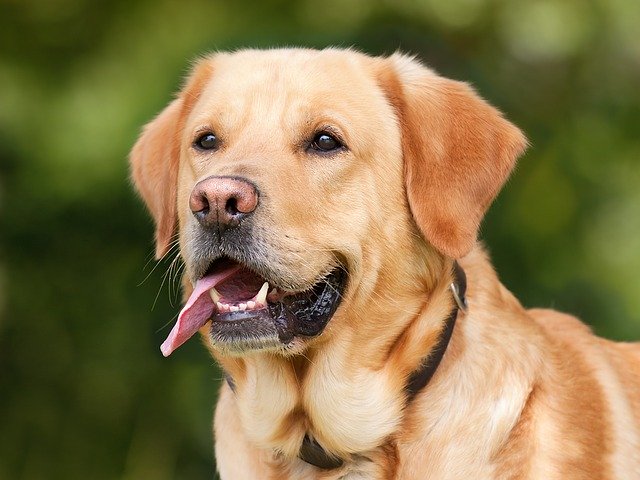Seeing that my dog is restless and pacing at night didn’t sit right with me. Now, I’ve narrowed the problem down to:
- Bad diet
- Stress and fear
- Too much energy
- GDV
My Dog Is Restless and Pacing at Night
First, take a deep breath, and try to relax. I’ve been through the same thing as you, and I was worried just as you probably are now.
But I now know why my dog is restless and pacing at night, and the reason isn’t nearly as bad as I thought.
Even though our situations might not be exactly the same, the problem almost always has a solution.
So before you start spiraling and become a ball of stress, this is what you should know.
Why Do Dogs Become Restless?
The only way to get to the bottom of the problem is by breaking it up into categories.
When I was looking into why my dog is restless and pacing at night, I first set out to understand what’s causing the restlessness.
And these are some of the usual culprits:.
1. Phobias and Fears
Not many people know this, but dogs suffer from phobias, exactly like humans. Of course, just like people, every pooch is different and can be afraid of lots of things.
But the most common phobia in dogs is a fear of loud noises.
You can especially see dogs becoming restless, or even hiding when they hear fireworks, thunderstorms, and vacuums.
They can also become afraid during or following a specific event.
For example, if your dog hates going to the vet, it’ll become nervous and restless as soon as you step into the office.
Another pretty common phobia is the fear of riding in a car.
I’ve personally had to struggle with my dog for 30 minutes before even getting him inside the car.
Once he was in, he would neither sit down nor stay still.
But as I said, these are just some of the more common phobias.
The truth is, dogs can be scared of anything. They can be afraid of men with facial hair, lamps, or random household objects.
2. Separation Anxiety
Separation anxiety or fear of abandonment is another pretty big trigger that can cause restlessness in dogs.
When looking for an answer to why my dog is restless and pacing at night, I started here.
I noticed that he would start walking round in circles every time he saw me getting ready for bed because I didn’t let him go inside the bedroom.
To test my theory that this was causing my dog’s nervous behavior, I decided to open the doors to my bedroom and put a little doggy bed inside for him to sleep.
Helpful: Reason Why Dog sleep On His Back
To my surprise, this trick actually worked, and he fell asleep like a log.
I do want to mention that, of course, not all dogs are the same. Some dogs feel separation anxiety when their human goes to work, or even to the store.
You can’t really control that or put their mind at ease by telling them that you’re coming back.
But there are ways to remedy this, and I’ll get into them a bit later.
3. Tapeworms
Tapeworms are pretty common with almost all dog breeds and ages, but they’re often more prominent in puppies.
These intestinal parasitic worms can cause blockage and make your dog feel restless.
Treating tapeworms is pretty straightforward, and it only involves giving your precious pooch some medicine.
Of course, make sure that it’s checked out by a vet before you do anything.
4. Stress
As I mentioned earlier, dogs can often feel stress, due to fear or anxiety, but it can also be due to memory loss or decreased cognitive function.
They can also feel stressed out when you change their environment or daily schedule in any way.
For example, if you always used to feed your dog before bedtime, but decided to change it, it might feel stress.
In turn, it’ll become restless, and it’ll be difficult for it to fall asleep.
Also, we now know that a dog can have trouble getting used to new environments.
So if you’ve moved into a new home, or even changed your dog’s bed, it can start feeling anxious.
Helpful: Dog Suddenly Anxious at Night: Common Causes and Solutions
Over time, your dog will get used to its new surroundings, and the restlessness will disappear.
But during that transition period, make sure to give your pooch some extra love and affection.
5. Gastric Dilatation Volvulus (GDV)
Gastric Dilatation Volvulus (GDV) could be another possible reason for the restlessness.
Some other names for this condition are “bloat” and “gastric torsion” and it’s a condition that’s caused by the twisting of the stomach.
Unfortunately, there are a ton of different things that can bring on GDV, including stress, type of food, eating and drinking too quickly, and much more.
This condition is extremely painful and uncomfortable and can result in a change in behavior.
So if you see your dog being restless, not sleeping or eating well, or feeling lethargic, call a vet immediately.
A quick reaction can save your dog from suffering and ensure a long and happy life.
What’s Causing My Dog to Pace?
Now that you know what’s causing the restlessness, it’s time to tackle the pacing and figure out what that’s all about.
1. Being Bored
If my dog is restless and pacing at night, the number one culprits are usually boredom and lack of stimulation.
For example, if the walk that day wasn’t long enough or if I didn’t play with him as much as he wanted to, he’ll start to pace.
My dog will become somewhat nervous and stressed because he hasn’t used up all of his energy.
In turn, since he’s not tired yet, he’ll start to pace right before bedtime, and won’t be able to fall asleep.
If you’re just about to go to sleep when your dog starts pacing, it can be a little annoying.
But the best way to actually fix it is by taking your dog for a walk, playing, or letting it run around until it’s tired.
2. Being Too Excited
On the other side of the spectrum, your pooch might start pacing at night because it’s just too gosh darn excited.
Some dogs absolutely love snuggling up to their humans, and can’t wait for bedtime.
So when they see you brushing your teeth or getting ready for bed, they’ll start pacing.
Yes, it’s a bit unusual, but it just shows how much your dog loves you, and that it’s excited to cuddle with you.
I really don’t see a need to fix or change this behavior, because it’s pretty harmless and all-around adorable.
3. Sugar High
Some processed dog foods are actually full of sugar, which, as you probably know, is terrible for your pooch.
Sugar can cause tooth decay, upset stomach, toxicity, and so many other bad things.
But in addition to the physical side effects, dogs can actually experience sugar highs.
So just like humans, if they get a sugar high, they’ll become jumpy, nervous, and have way too much energy.
All of those things combined lead to your dog pacing and being restless.
Usually, if all of this is taking place at night, it’s because you’re feeding your dog too late in the evening.
So to avoid a sugar high before bedtime, start by changing your dog’s food for something healthier.
Also, make sure to feed it a couple of hours before its bedtime to avoid pacing.
Dog Restless and Pacing at Night — Now What?
So now that you have the most common culprits for the restlessness and pacing, it’s time to get proactive.
It’s time for you to think about what your next steps are going to be so that both you and your dog can get a good night’s sleep.
The two easiest things to fix are your dog’s food and bed.
If your dog is restless right before or after it goes to sleep, get some new chow that has a high percentage of protein.
Also, while you’re down at the pet store, shop for a new bed that’s comfortable and the right size for your dog.
Then, start tackling and monitoring your dog’s activity levels. If your pooch isn’t getting enough daily exercise, increase it.
Take longer walks, maybe get some new toys, and make sure your dog’s tired before bedtime.
But if none of these changes seem to make a difference, consider going to the vet.
Your furry friend might have tapeworms or a case of GDV that a vet needs to take care of.
Final Thoughts
The fact that my dog is restless and pacing at night, I thought, was a sign that something was terribly wrong.
However, after speaking with a few professionals, I discovered that both the problem and solution were pretty simple.
So before your mind goes to the worst-case scenarios, try to implement some of the changes I’ve mentioned.
Of course, if you’re really concerned, talk to a vet or a trainer, and get to the bottom of the problem as soon as possible.


